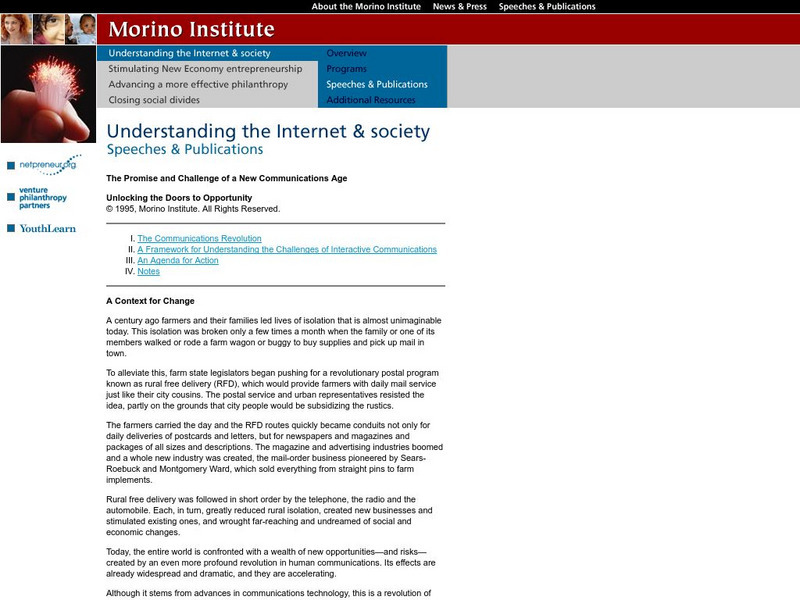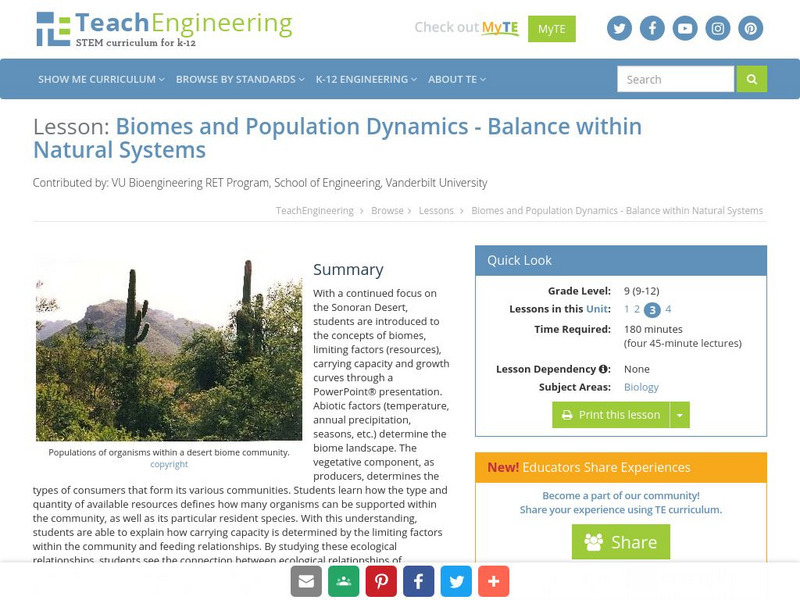Hi, what do you want to do?
Smithsonian Institution
National Museum of Natural History: American Mammals: Pacific Jumping Mouse
Pacific Jumping Mice are remarkably quick and unpredictable. They push off with both hind feet and land on both forefeet, apparently using the tail for balance--a Mouse who had lost its tail somersaulted trying to land. Learn more about...
Smithsonian Institution
National Museum of Natural History: American Mammals: Long Tailed Shrew
The Long-tailed Shrew probably uses its long tail for balance when it is climbing among the rocks or boulders that are always present where it lives. It spends almost all its time underground, and was, until recently, thought to be...
ibiblio
Ibiblio: Web Museum: Romanticism
This short article tells of the period of time in the late 18th century, when strong emotion and irrational behavior was expressed through the arts. It tells how Romanticism rejected harmony, balance and calmness, and yet typified...
Lumen Learning
Lumen: Boundless Biology: Threats to Biodiversity
Looks at the impact of overharvesting, such as overfishing, on biodiversity. It talks of the 'tragedy of the commons,' where harvesters do not feel responsible for protecting a species because they fish in shared areas. It also touches...
Other
Morino Institute: Promise of a New Communications Age
This speech outlines the nature of the communications revolution, establishes a framework for the most important challenges that must be addressed and proposes an Agenda for Action for individuals and groups to take advantage of the...
Schools of California Online Resources for Education
Score: Latin American Marketing Project
This site from Score provides information on the global marketplace. This is a unit where young scholars are grouped to find out the best Latin American country to introduce a new fast food business. Site is very well outlined and...
TeachEngineering
Teach Engineering: Biomes and Population Dynamics
This instructional activity begins with a PowerPoint slideshow that covers important ecological concepts about biomes, limiting factors, carrying capacity, and population growth. Learners will look at the population dynamics involved...
ClassFlow
Class Flow: Rates of Change
[Free Registration/Login Required] This is part 4 of a 4 part series to include the nature of chemical reactions, reaction types, and balancing chemical equations.
Exploratorium
Exploratorium: Science Snacks: Take It From the Top
Students defy gravity by stacking blocks in different ways in this exercise. Other projects are linked to this lesson as well.
TeachEngineering
Teach Engineering: Computer Simulation of the Sonoran Desert Community
The computer program's simulation of a Sonoran desert community should ultimately strengthen the student's comprehension of what is required for a natural ecosystem to sustain itself (remain in balance). This computer simulation program...
Louisiana Department of Education
Louisiana Doe: Louisiana Believes: Social Studies: Grade 3: A Log's Life
Third graders learn about the interdependence of animals and trees in nature and the cycles of growth and decay. Students also learn about the importance of preserving balance in nature and what happens when we upset that balance. While...
TeachEngineering
Teach Engineering: Mechanics Mania
Through ten lessons and numerous activities, students explore the natural universal rules engineers and physicists use to understand how things move and stay still. Together, these rules are called "mechanics." The study of mechanics is...
TeachEngineering
Teach Engineering: Implementing Biomimicry and Sustainable Design
This unit provides students with an opportunity to study ecological relationships with an emphasis on the Sonoran Desert. Students appreciate the complexity and balance that supports the exchange of energy and matter within food webs....
BSCS Science Learning
Bscs: Restoring Ea Middle School Science Unit
Restoring Ea is a place-based middle school science unit exploring management strategies that could be used for the Loko ea fishpond to sustainably feed people and ensure the ecosystem is healthy and pono (balanced). While specifically...
TeachEngineering
Teach Engineering: It Takes Two to Tangle
Students explore the theme of conflict in literature. They learn the difference between internal and external conflict and various types of conflicts, including self against self, self against other, and self against nature or machine....
American Institute of Biological Sciences
Action Bioscience: Ecology and Economics
Natural systems studied by ecologists and human systems studied by economists must work together to ensure a future of biodiversity. This interview identifies the needs for both and ways in which the two can balance conservation with...


















